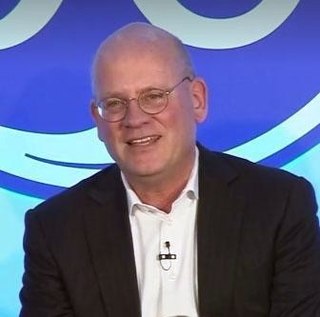A Quote by Travis Kalanick
After Scour, I started a company called Red Swoosh. The idea was to take those litigants who sued us for a huge amount of money and turn them into customers with the same technology. I wanted to get them to pay me. It was a revenge business.
Related Quotes
The debt settlement company will direct you to stop paying your creditor and instead send the money directly to them each month. The company's goal is to demonstrate to your creditor that you don't have the money to pay up - that's your leverage. After a few months, the company will typically go to the creditor and say, "I'm holding X dollars on behalf of your customer. He doesn't have the money to pay you, so you should take this amount as a settlement or you'll end up with nothing." If the creditor wants to get paid badly enough, it will take the money.
Senior executives can, after a fashion, get a portion of their pay tax-free. You defer part of your income and not have to pay taxes on it, and then when you retire you have the company buy a life insurance policy on you using that money. The company can deduct that money because it is a business expense, and the money will get paid out to your children or grandchildren when you die, so you have effectively given them your money and it's never been taxed.
Sure, some employers are are afraid of letting older workers go because they think they're going to get sued. And they probably will get sued. But the reality is, you could get sued at any time by any kind of worker. I think its incumbent on an employer, if they want to be smart, to figure out what is the benefit of keeping this employee or letting them go. Do the calculation and just go ahead and either keep them or let them go based on what's good for the business.
Basic US economics tells us that back-of-the-house workers are very unlikely to get more pay overall. The fact that workers are in those jobs means employers are already paying them what they need to pay them to get them in the current environment. If employers do share some tips with them, it will likely be offset by a reduction in their base pay.
People, materials, facilities, money, and time are the resources available to us for conducting our business. By applying our skills, we turn these resources into useful products and services. If we do a good job, customers pay us more for our products than the sum of our costs in producing and distributing them. This difference, our profit, represents the value we add to the resources we utilize.
We want our users to use the Found Money feature so they can get extra money while they shop, which will be invested in their future. And that's a powerful idea for our customers, and it is a powerful idea for brands because from their perspective they are increasing loyalty for their brands by investing in their customers' future. And of course it helps us grow our business.
Part of an icon's power comes from its indivisibility. The swoosh cannot be further deconstructed into its component parts. Just as golden arches mean McDonald's, and the little red tab means Levi's, the swoosh is Nike. The product is its icon, inseparably and without exception. To buy a pair of Nike shoes is to buy the Nike swoosh.
Barrels are very difficult to find. But when you have them, give them lots of equity. Promote them, take them to dinner every week, because they are virtually irreplaceable because they are also very culturally specific. So a barrel at one company may not be a barrel at another company. One of the ways, the definition of a barrel is, they can take an idea from conception and take it all the way to shipping and bring people with them.
This is what customers pay us for - to sweat all these details so it's easy and pleasant for them to use our computers. We're supposed to be really good at this. That doesn't mean we don't listen to customers, but it's hard for them to tell you what they want when they've never seen anything remotely like it.
The biggest concern with female athletes is they don't naturally compete. And so I think a part of what we do here exceptionally well that separates us from other programs is we train them to compete. So a huge challenge in women's athletics is to get them to compete against their teammates and friends in practice with the same intensity they compete with their bitter rivals. So that's a huge challenge for me, to get the women in practice to go after each other the way you would a rival
We buy things. We wear them or put them on our walls, or sit on them, but anyone who wants to can take them away from us. Or break them.
...
Long after he's dead, someone else will own those stupid little boxes, and then someone after him, just as someone owned them before he did. But no one ever thinks of that: objects survive us and go on living. It's stupid to believe we own them. And it's sinful for them to be so important.


































